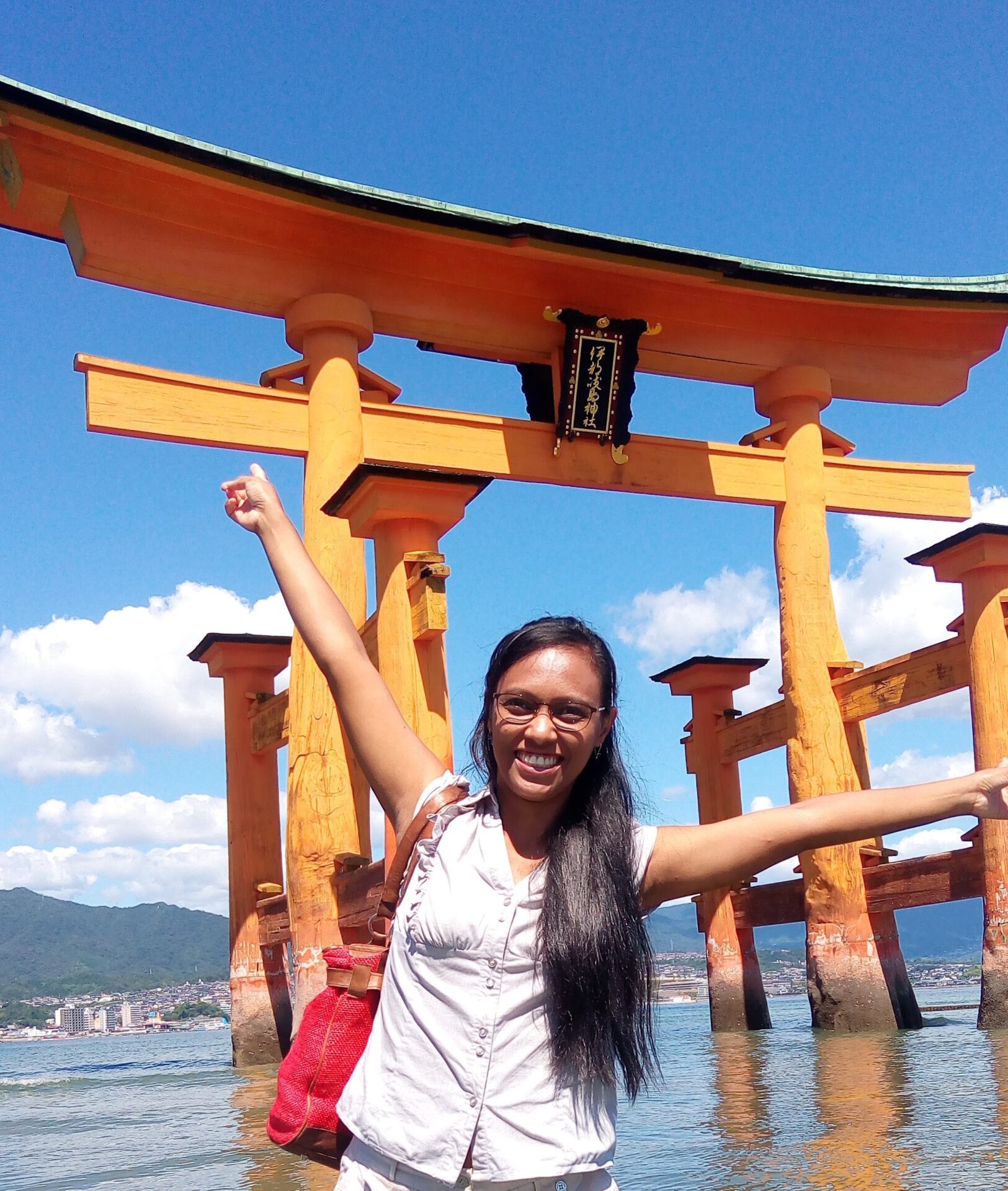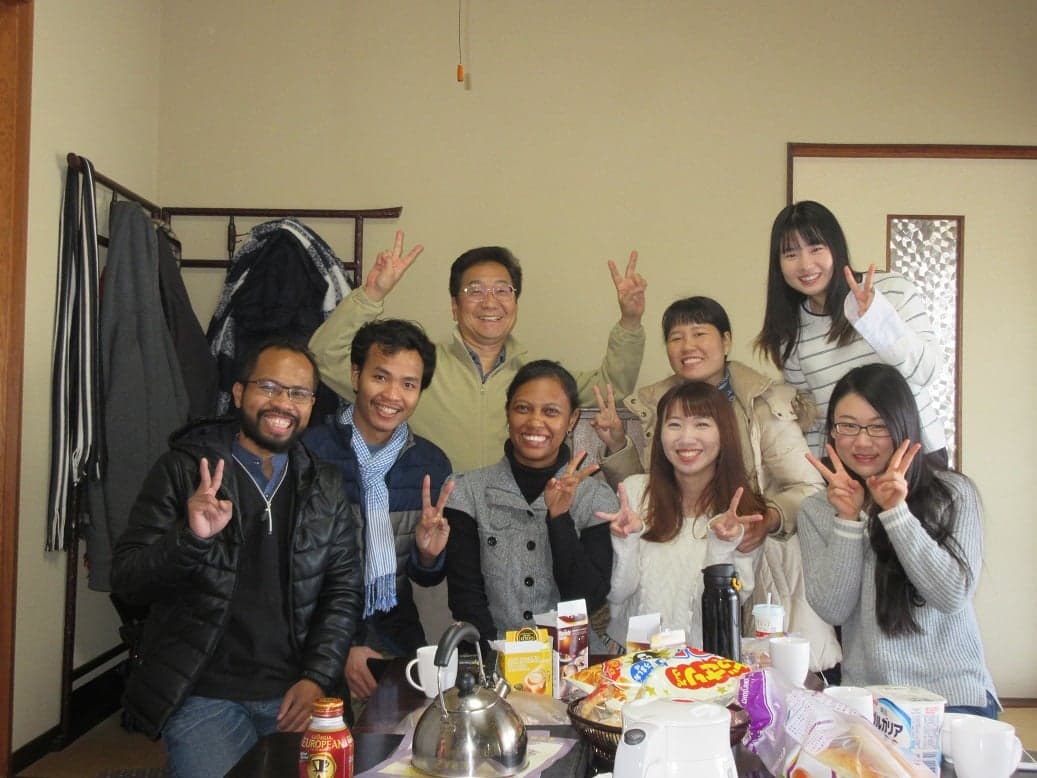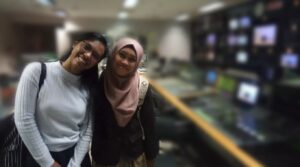 In front of the big Torii Gate of Itsukushima Shrine, one of the three top scenic spot in Japan, Miyajima 2017
In front of the big Torii Gate of Itsukushima Shrine, one of the three top scenic spot in Japan, Miyajima 2017| Name | Rasoanjanahary Tantely N. |
|---|---|
| Country | Madagascar |
| Year / month of graduation | September 2019 |
| Degree obtained | Master’s |
| Position / organization as of March 2021 |
Full-time employee / Satake Corporation |
This article was written in March 2021.
Why did you choose Japan, and Hiroshima university for your study?
Having worked as a language teacher and administration staff at a university in my country, I wanted to deepen my knowledge on education, namely: educational organization leading to students’ learning improvement. I chose Japan to pursue my study because I was always fascinated by how Japanese people behave so harmoniously in society making it strong and resilient despite the natural disasters occurring repeatedly. Precisely, I wanted to know what part of its renowned education system had something to do with its development.
 During our 2days retreat seminar on Development of Higher Education with Hotta-sensei, Onomichi 2017
During our 2days retreat seminar on Development of Higher Education with Hotta-sensei, Onomichi 2017After going over different programs, I finally came to know the Education Development Course at Hiroshima University which would allow me to learn about not only education itself but also about international cooperation and development to learn how to bring my learnings from Japan into my country’s education and contribute to its development.
What did you learn and study at Hiroshima university?
We learnt about theories and practices to address educational issues in developing countries in the context of international cooperation. We had the chance to discuss timely and real problems happening in the fields of education as our seminar members were encouraged to conduct fieldwork for their research. As for me, I focused on the improvement of access to higher education in developing countries, particularly in Madagascar, where higher education had been reserved to a very small share of the population. My masters’ thesis was about the study on the factors which affect student’s choice of higher education institutions, from the perspective of distance education learners.
Did you enjoy your stay in Hiroshima?
My stay in Hiroshima was wonderful. Its deeply rooted history dated from the world-war period makes Hiroshima a very charming place. I could attend the Hiroshima Peace Memorial Ceremony with guests from African Sahel countries. I am happy that I could help them as a translator, in their training organized by the Center for International Cooperation in Education to learn about building resilient communities through youth education.
 During our site visit at the Open University of Japan, to learn about Japanese distance education, Chiba 2018
During our site visit at the Open University of Japan, to learn about Japanese distance education, Chiba 2018Also, one of the three best tourism spots in Japan is located in Itsukushima, Hiroshima, a world-heritage with beautiful landscape scenery. I always enjoy each of my visits there.
Please tell us your current work. Does what you learned or studied at Hiroshima university help you?
Currently, I am working for Satake Corporation, a manufacturer for integrated rice milling plants located in Higashihiroshima. I am now in charge of designing flour milling plants for our overseas customers. With the travel restrictions due to Covid-19, I am dealing with our group companies remotely to design and help with the construction of our customers’ milling plants. One of the most useful learnings I got from Hiroshima University is the ability to work in an international environment with a global mindset. We were trained to cope with global issues, but at the same time, we were required to understand the local context to be able to provide the best fitting policies for the targeted area and country, according to their economic development and most importantly their local culture, which now I use here in Satake when designing our products to our customers.
Do you recommend Hiroshima university for others to choose?
Hiroshima University has very resourceful researchers and professors working in international settings. From my experience, the support and help from my academic advisor, Professor Yoko Ishida, was the core pillar which contributed to my enjoyment in achieving my masters’ studies. So yes I do recommend Hiroshima University for students seeking for a unique, academic and practical university experience, which must be useful for their future.
Back